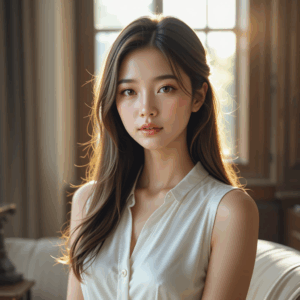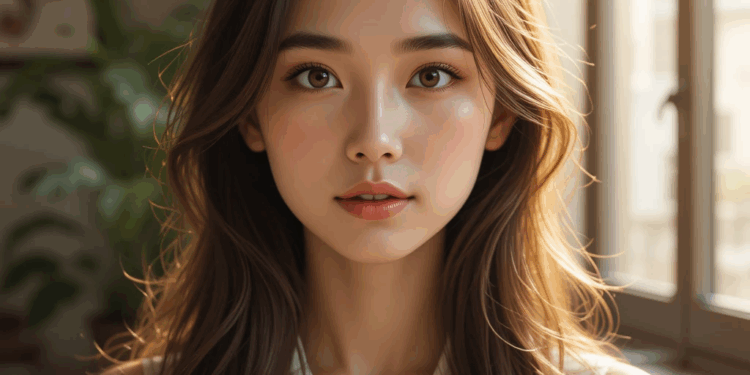Delve into the world of Next-Gen Beauty with a focus on how AI perceives the modern woman. This captivating exploration sheds light on the intersection of technology and beauty, offering a fresh perspective on current trends.
 AI technology continues to advance and shape the beauty industry for women in various ways. From personalized product recommendations to virtual try-on experiences, the role of AI in beauty is only expected to grow in the future.
AI technology continues to advance and shape the beauty industry for women in various ways. From personalized product recommendations to virtual try-on experiences, the role of AI in beauty is only expected to grow in the future.
Overview of Next-Gen Beauty
Next-Gen Beauty refers to the modern approach to beauty that integrates cutting-edge technology, particularly artificial intelligence, to enhance and redefine traditional beauty standards. AI technology is revolutionizing the beauty industry by providing personalized recommendations, virtual try-on experiences, and advanced skincare analysis.Impact of AI on Beauty Standards
Artificial intelligence has significantly impacted beauty standards for women by promoting diversity and inclusivity. AI-powered beauty tools can cater to a wide range of skin tones, hair types, and facial features, challenging conventional beauty norms and celebrating individuality.Intersection of Technology and Beauty
In the digital age, the intersection of technology and beauty has blurred the lines between the physical and virtual worlds. From augmented reality makeup apps to AI-powered skincare devices, technology has become a vital component of the beauty routine, offering innovative solutions and personalized experiences to consumers.AI Applications in Beauty
AI technology has revolutionized the beauty industry, offering innovative solutions for personalized skincare, virtual makeup experiences, color matching, and product development.Personalized Skincare Recommendations
AI algorithms analyze individual skin characteristics, such as texture, tone, and concerns, to provide tailored skincare recommendations. By utilizing machine learning and data analysis, AI can suggest products that are best suited for each person's unique skin needs.Virtual Makeup Try-On Experiences
AI-powered virtual makeup try-on tools allow users to experiment with different makeup looks in real-time without physically applying products. These applications use facial recognition technology to accurately overlay makeup products onto a user's face, providing a realistic preview of how the makeup will look.Color Matching for Diverse Skin Tones
AI algorithms are instrumental in developing color matching tools that cater to a wide range of skin tones. By analyzing vast databases of skin tones and product shades, AI can accurately match foundation, concealer, and other makeup products to ensure a seamless and inclusive experience for users of all ethnicities.Enhancing Beauty Product Development with AI
AI-powered tools streamline the beauty product development process by predicting trends, analyzing consumer feedback, and optimizing formulations. From creating personalized fragrance profiles to identifying ingredients that address specific skincare concerns, AI enhances the efficiency and effectiveness of beauty product development.Ethical Considerations
AI algorithms in the beauty industry raise ethical concerns that need to be addressed. These algorithms have the potential to perpetuate unrealistic beauty standards and impact the self-esteem and body image of women.Impact on Body Image and Self-Esteem
- AI-driven beauty technologies can contribute to the reinforcement of narrow beauty standards, leading to feelings of inadequacy among women who do not fit these standards.
- Constant exposure to AI-edited images on social media can distort perceptions of beauty, creating unrealistic expectations and damaging self-esteem.
- It is crucial to consider the psychological well-being of individuals impacted by AI beauty technologies and promote a more diverse and inclusive representation of beauty.
Importance of Diversity and Inclusivity
- Diversity and inclusivity are essential in AI beauty technologies to ensure that a wide range of beauty standards is represented and celebrated.
- By incorporating diverse representations of beauty, AI algorithms can help promote a more inclusive and accepting society.
- It is important to prioritize diversity in data sets used to train AI models to avoid perpetuating biases and stereotypes.
Transparency and Accountability
- Ensuring transparency in AI-driven beauty solutions is crucial to building trust with consumers and addressing ethical concerns.
- Companies should be transparent about the data sources, algorithms, and criteria used in developing beauty-related AI technologies.
- Establishing accountability mechanisms can help monitor the impact of AI on beauty standards and ensure that ethical guidelines are followed throughout the development process.
Future Trends
 AI technology continues to advance and shape the beauty industry for women in various ways. From personalized product recommendations to virtual try-on experiences, the role of AI in beauty is only expected to grow in the future.
AI technology continues to advance and shape the beauty industry for women in various ways. From personalized product recommendations to virtual try-on experiences, the role of AI in beauty is only expected to grow in the future.
Evolution of AI in Beauty
- AI algorithms will become more sophisticated in analyzing skin tones, textures, and facial features to provide tailored beauty recommendations.
- Virtual beauty assistants powered by AI will offer real-time skincare advice and makeup tutorials based on individual needs and preferences.
- AI-driven devices like smart mirrors will enable consumers to virtually try on makeup products before making a purchase, enhancing the overall shopping experience.
Challenges of AI Adoption in Beauty
- Privacy concerns may arise as AI collects and analyzes personal data to deliver customized beauty solutions, raising questions about data security and consumer trust.
- The reliance on AI for beauty recommendations may lead to a lack of human touch and personalized interactions, potentially diminishing the emotional connection between brands and consumers.
- Ethical considerations regarding AI-generated beauty standards and the potential reinforcement of unrealistic beauty ideals through algorithmic bias need to be addressed to promote inclusivity and diversity in the beauty industry.
Innovative AI Applications in Beauty
- AI-powered skincare devices that assess skin conditions and recommend personalized skincare routines based on real-time analysis.
- Virtual beauty filters that use AI to enhance features in video calls, blurring the line between digital and physical beauty standards.
- AI-generated beauty content on social media platforms that offers hyper-realistic makeup looks and trends, influencing consumer preferences and purchase decisions.
Implications of AI-generated Beauty Content on Social Media
- AI-generated beauty content may create unrealistic beauty standards, leading to increased pressure on individuals to conform to digitally altered appearances.
- The rise of AI influencers and virtual beauty creators could challenge traditional notions of celebrity endorsements and influencer marketing, reshaping the beauty influencer landscape.
- Consumers may rely more on AI-generated beauty content for inspiration and product recommendations, impacting the way brands engage with their target audience and market their products.










